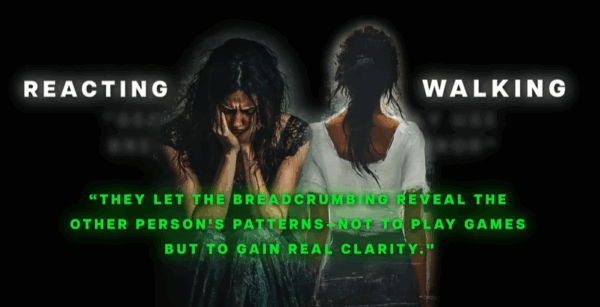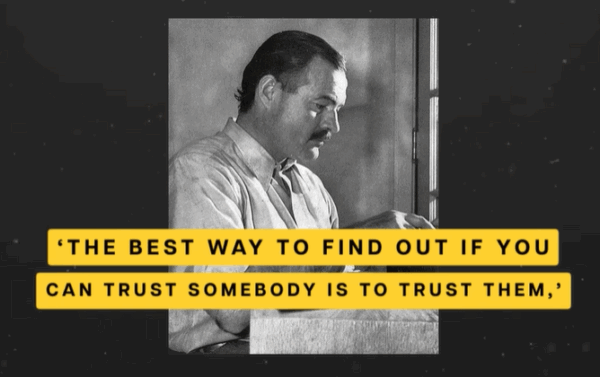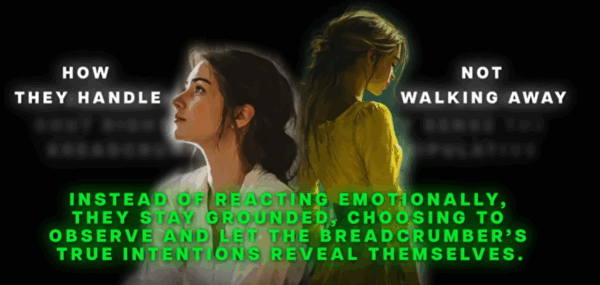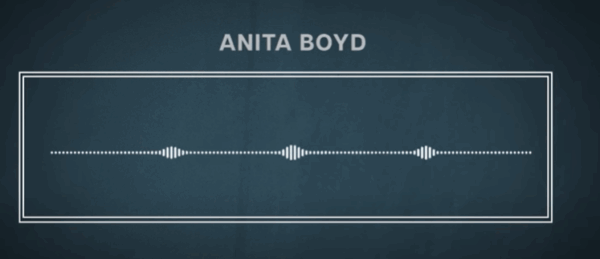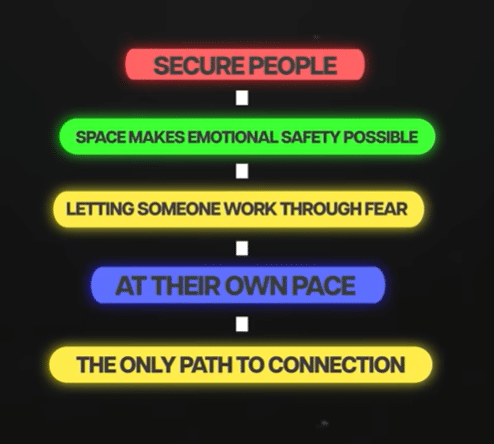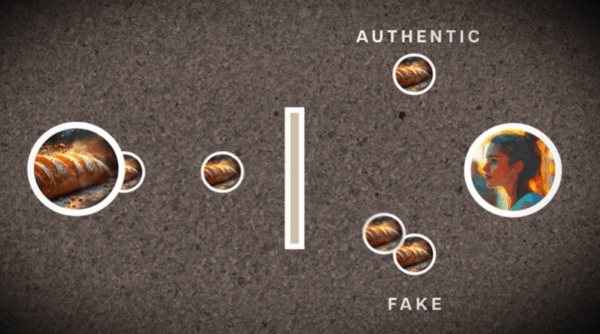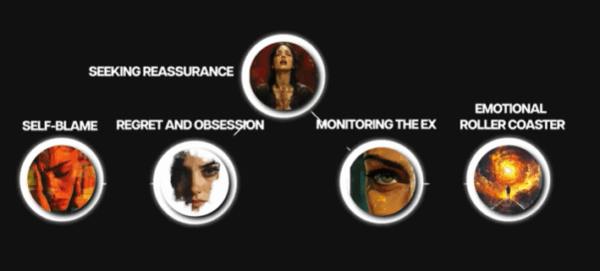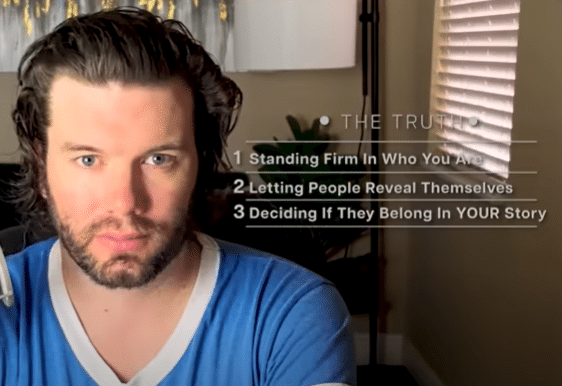Most people think a secure person would simply ignore breadcrumbing, or walk away without a second thought, right?
But there’s a little-known twist: Secure people actually use breadcrumbing as a mirror.
Instead of reacting emotionally or walking away immediately, they let the breadcrumbing reveal the other person’s patterns—not to play games but to gain real clarity.
They know breadcrumbing says more about the breadcrumber than it does about them. And here’s the genius part: they don’t respond to each breadcrumb.
They respond when they’re ready.
Look at this,
Ernest Hemingway once said, ‘The best way to find out if you can trust somebody is to trust them,”
Secure people embody this.
They trust others to reveal their true selves over time, observing without needing to react to every small interaction. Then, what I find really impressive about this is, is the level of strength required to actually pull it off.
Think about it for a moment:
Imagine you’re dating someone, and instead of getting swept up in every text or small sign of interest, you step back and let their actions unfold over time.
It’s like watching a game of chess where you’re confident enough not to play every move instantly, knowing that each pause and choice reveals more about your opponent’s strategy than rushing would.
This takes patience and real self-assurance, especially when most people would feel compelled to ‘do something’ to keep the momentum going or to get reassurance.
Secure people trust that true intentions will always come to the surface—and that takes a quiet, almost unshakable confidence most people don’t realize.
Maya Angelou took it even further:
‘’When someone shows you who they are, believe them the first time.”

What Are Your Chances of Getting Your Ex Boyfriend Back?
Take the quizShe’s right!
But you know, why is it that secure people don’t get emotionally hooked by breadcrumbing?
I mean, check this out.
I went to reddit and simply typed in “Breadcrumbing” and this is what I found:
- Why Breadcrumbing is PURE EVIL
- Seeing a Guy who is breadcrumbing me, advice please
- Why they’re breadcrumbing you…
- Sudden change in the man I’m dating. Is this breadcrumbing?
All of these people are desperate for help, for understanding.
So, what is it that the secure people know that the rest of us don’t? Why aren’t they pulled into this same roller coaster?
Here’s the difference:
- Secure people don’t live for the highs and lows
- They’ve experienced them before and don’t need that rush of validation to feel secure.
- Think of it like a steady sailor on rough waters.
- Where most people would cling to every wave, trying to read each one as a signal of safety or danger,
- A secure person keeps their eye on the horizon.
- They see each wave—each breadcrumb—as just part of the waters, not a sign of love or interest.
It’s a pattern, not a promise.
They don’t get pulled in by the swells of attention, or left empty in the lows.
Each high or low is just one piece of information, not a validation of their worth. Instead of wondering, ‘Maybe they’re interested, maybe they’re not,’ secure people stay steady, seeing the breadcrumbing pattern for what it is:
Mixed signals that reveal more about the other person than about themselves.
It’s almost like watching the stock market:
Where others get thrilled by the peaks and panicked by the drops, secure people understand that these small fluctuations don’t affect the bigger picture.
They don’t overreact or underreact because they’re not looking for constant reassurance.
And that’s why, while everyone else is trying to make sense of breadcrumbing, secure people are already two steps ahead, letting the pattern reveal itself before they invest any more.
Alright, so what do we know so far?
- We know that secure people use breadcrumbing as a mirror
- They don’t get emotionally hooked on it
- They just use it to make sense of the pattern
But it’s what they do next in response to breadcrumbing that belies their genius.
Breadcrumbing sucks.
There was an analogy I stumbled across on this reddit post that I think perfectly sums up what breadcrumbing can feel like for the average victim.
Imagine a dog finds a bowl of delicious food on a porch. It eats to its heart’s content.
The next day, it returns, and sure enough, there’s another full bowl waiting.

What Are Your Chances of Getting Your Ex Boyfriend Back?
Take the quizBut the day after, the bowl is empty.
The dog thinks, maybe it’s just an off day, and leaves hungry.
The next day, it returns and finds a tiny piece of food—just enough to make it stay but nowhere near satisfying.
Hungry and hopeful, the dog eats it, telling itself maybe tomorrow will be better.
But this pattern continues: sometimes a small piece, sometimes a half-full bowl, and just often enough, a full bowl to keep the dog coming back.
And each day, the dog returns, waiting, hoping, wondering what it will find. “You see the game?”
Breadcrumbing works the same way.
Each piece is just enough to keep someone coming back but never enough to truly satisfy. Of course, people aren’t dogs at some point throughout that process we start to realize what the “porch owner” is doing.
And it infuriates us.
And we have every right to be infuriated. How dare someone treat us this way.
Even the person who came up with this analogy on Reddit was infuriated,
“Please don’t allow men to do this to you!!! This is the height of MEANNESS!!”
The natural reaction is to just leave that person forever, but secure people operate a little differently.
Secure people don’t slam the door shut right away, even if they sense the breadcrumbing might be manipulative.
They know that the real power lies in how they handle it, not just walking away.
- Instead of reacting emotionally, they stay grounded, choosing to observe and let the breadcrumber’s true intentions reveal themselves.
It’s a quiet kind of strength, one that keeps them in control without needing to cut the person off entirely.
But this begs an interesting question.
Why?
Why not just walk away and be done with it?
What possible reason could they have for staying in such a situation?

What Are Your Chances of Getting Your Ex Boyfriend Back?
Take the quizHere’s the thing:
- Secure people don’t stay because they’re willing to settle, or because they’re hooked by the breadcrumbs.
- They stay, at least for a little while, because they value clarity over closure.
Where most people rush to escape, secure people seek to understand. They want to see if there’s any genuine depth to the other person or if it’s all just a carefully crafted illusion.
I told this story in the last video I did on avoidants about a woman named Anita Boyd, a self-described avoidant attachment, type who’d always been drawn to anxious partners.
You know the pattern: she’d give them attention, make promises, then pull back, leaving both of them questioning everything. It was like clockwork, a constant cycle of ups and downs.
- Anita: “There’s this constant questioning, there’s this constant up and down… promises, and then they’re not being kept.”
But then something unexpected happened. Anita met a man with a secure attachment style—someone steady, dependable, and genuinely interested in her. He didn’t play games or disappear, and for Anita, this was foreign territory.
- Anita: “..My system essentially was feeling like, this is a foreign body…I don’t know what this is. I can’t compare it to anything. I have no category for that.”
Now, you’d think she’d feel relieved, right? But her avoidant instincts told her to push him away, as if her mind was saying, ‘This is too unfamiliar, too good to be true.’
- Anita: “What does the system do when it feels in the unknown? It pushes away, right?”
Her partner, however, was secure. He stayed calm and steady, didn’t try to fix her fears or chase her. He just held his ground with quiet confidence. Anita recalls moments where he’d show up at a party she was at—not because he needed her attention, but because he wanted to be around.
- Anita: “He was at this party, and I was like, why are you here? I didn’t invite you…”
At first, she ignored him—pushing him away. And yet, he didn’t react. He didn’t need her validation. He gave her the freedom to ‘move through her emotions’ on her own terms, letting her find her way back to him without pressure.
- Anita: “But he wasn’t trying to convince me or anything. He was just like…’Happy Friday…I could feel the space…my fear needed space… he wasn’t attached, and I could feel it.'”
And that space he gave her? It was exactly what she needed. Without any pressure, she finally felt safe enough to process her emotions at her own pace. Instead of clinging tighter, he stepped back, held his ground, and waited for her to reach out when she was ready. And eventually, she did.
- Anita: “If you don’t have anything that pushes against us, we come out the other side. At the end we’re like…okay, still here. The guy is still there…”
Now, imagine if this secure partner had walked away the first time Anita pulled back or breadcrumbed.
If he’d just decided it wasn’t worth his time, they wouldn’t be married today.
And that’s what makes secure people different: they don’t rush for closure, and they don’t demand instant commitment.
They’re patient enough to let the other person find their own way to clarity, rather than reacting emotionally, or walking away at the first sign of resistance.
Secure people know that sometimes, space is the one thing that makes emotional safety possible. They understand that letting someone work through their fear, at their own pace, is often the only path to true connection.
Now, that doesn’t mean secure people allow themselves to be taken advantage of.
They have their own quiet way of gauging consistency and openness, without forcing the other person to define the relationship.
You see:
- Most people who are being breadcrumbed are fully available to be breadcrumbed
- They make the breadcrumber the center of their focus
- Waiting and hoping for each tiny piece of attention.
But for secure people, it’s different:
- They don’t revolve their lives around someone who’s inconsistent, because they have other fulfilling options on their radar.
- They’re fine on their own, and they keep their lives rich with activities, friends, and goals that don’t depend on anyone else’s validation.
Think about it
While someone focused on the breadcrumber might jump at each text or be willing to drop plans just to see them, a secure person has no problem letting a text sit for hours or even days, if they’re busy.
They don’t cling to every word because they’re not waiting around. If someone wants their attention, they’ll need to show up consistently—secure people simply aren’t available for anything less.
Alright, let’s illustrate this a bit better.
Let’s say there’s this woman, Jackie who’s being breadcrumbed by someone who only reaches out when it’s convenient for them.
Instead of keeping her phone close or rearranging her plans just to respond, Jackie might check the message when she has time—after work, after the gym, or maybe after a dinner with friends.
If the breadcrumber wants to be part of her life, they’ll need to find a place in her schedule that’s not set aside just for them. And if the breadcrumbs keep coming, Jackie has no problem exploring her other options, meeting new people, and keeping her life full.
In the end, secure people are selective with their availability. They aren’t here to be waiting around, because they value themselves too much to settle for less than they deserve.
And if the breadcrumber doesn’t step up? They simply keep moving forward, with or without them.
Now, this aura, this approach to breadcrumbing actually has a really interesting effect on breadcrumbers.
Instead of demanding clarity, they let the breadcrumber decide if they want to move closer or drift away.
It creates a natural filter which allows secure people to see the other person’s intentions clearly, without any pressure or games.
Over time, the breadcrumber realizes that crumbs won’t keep a secure person interested; they’ll either have to step up or lose access to someone stable and desirable.
This is the part that few people see coming: the moment of clarity, where the secure person decides whether to open the door fully or walk away for good. By then, they’ve seen enough to know who they’re dealing with—and they’re ready to make that choice with confidence.
Now, I want to ask you something.
How often in your life have you been able to say, ‘I know my worth, and I won’t settle for less?’ How often have you chosen clarity over chaos, patience over impulsivity, knowing deep down that the right people will meet you halfway?
I’m going to level with you, I started coaching individuals way back in 2017 and no matter how hard I try to point them in the right direction, to show them what they need to do to be successful with avoidants.
They can’t seem to escape what I like to call the “Anxiety Cycle”.
- Self-Blame – They constantly blame themselves, feeling responsible for the breakup.
- Regret and Obsession – They replay the relationship, obsessing over what they could have done differently.
- Seeking Reassurance – They seek validation from friends, hoping to hear they weren’t at fault.
- Monitoring the Ex – They check social media or ask about their ex, trying to gauge any chance of reconciliation.
- Emotional Roller Coaster – They cycle through hope and despair, unable to fully let go, which keeps them stuck.
And then it just starts over. Around and around.
Here’s the truth.
It’s not about winning someone over, reacting to their every move, or getting swept up in the highs and lows.
Here’s what it’s really about.
- Standing firm in who you are
- Letting people reveal themselves
- Deciding if they belong in your story—not the other way around.
So the next time you’re faced with breadcrumbs, ask yourself: Is this enough for me? Because true security isn’t about holding onto someone else’s potential; it’s about knowing your value and walking away if they can’t see it.
